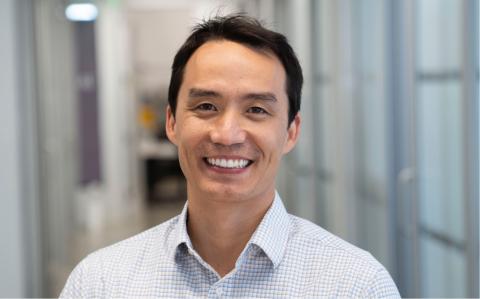What motivated you to start Shield AI?
I joined my brother Brandon and co-founder Andrew to create Shield AI because Brandon inspired me, through his own example, to think about how I could make a meaningful contribution to protecting service members and innocent civilians. Andrew inspired me to believe that the necessary technologies were within reach. Before this, I did not imagine working in the national security space.
Shield AI will develop into a leader in the national security space through the combination of technology leadership, unique insight into the nation’s intelligence requirements, and disciplined execution by extraordinary teams.
When life becomes busy, what do you prioritize?
Priorities are health, family, work — in that order. My health is necessary to take care of my family and succeed at work, and thus it is first on the list. My family is second. I have always had an inordinately high commitment to work, and thus my family knows my habits and are supportive.
Work outcomes and family happiness respond to specific events, whereas health is less responsive to particular choices. If I miss a work deliverable, consequences are high. If I miss a birthday, consequence are high. If I miss a workout or a sleep, it is not a big deal. So, despite my priorities, when under tight time pressure I cut workouts and sleep first. I’ve missed those for months at a time when the stakes were high, and believe that sacrificing those two things has always been the right call, even in retrospect.
When did you get serious about entrepreneurship?
As kids, Brandon and I were always trying to find ways to make more money — we had paper routes, we sold Dragon Ball Z videos on eBay, mowed lawns, and we invested in stocks. For me, this was about finding ways to make money for things I wanted to buy, not about starting a business.
When it came to choosing a career, I didn’t know what I wanted to do — my 20-year-old self liked business, competing, and winning. Banking, consulting, and entrepreneurship were three paths that looked hard and thus interested me. I explored all three.
My choice to start a company was not scientific. I do not remember the exact reasons, but I probably chose starting a company because my dad had always told me to do it, and when considering the variables his voice, which I heard over my shoulder, made the difference.
At some point toward the end of my time at Qualcomm, I decided that I was not necessarily interested in being an entrepreneur for its own sake, but in building an organization that works at the cutting edge and makes a positive difference for the world in a way that makes me proud. That could be accomplished by joining a company or starting a company.
I chose to get an Electrical Engineering degree because my Dad told me that I would be an engineer if I wanted financial assistance. My Dad was an electrical engineer and thus I chose electrical engineering.
What are three of the biggest lessons you’ve learned as an entrepreneur?
It’s hard to choose just three, but here it goes:
Work hard. There are many things and outcomes you cannot control when building a business. The good news is that one of the biggest drivers of positive outcomes is in your control – and that is how hard you work. Sheer effort takes you very, very far.
Disciplined and rigorous execution of plans based on fundamentals is a pillar of success.
The people on your team are everything. Love your people. Put their success first. Invest in forming meaningful relationships with the people around you. Be kind to them. Help them smile. Steady them in moments of pain and and celebrate with them in times of success.
What are your favorite books of all time?
I’m going to share three works that influenced me and not my favorite books, because while I read several books per month, I do not read for fun. The last book I read for fun was in 1998, a Tom Clancy novel titled “Red Storm Rising.” I got halfway through and gave up. The last book I read for fun and finished was “Ender’s Game” which I did enjoy, but not enough to keep reading for fun.
Here are the three works that were influential for me:
“John Wooden On Leadership” — This book resonated with me like no book had, or has since. I was searching for a book on leadership that made sense to me, having read dozens of business leadership books prior. Wooden nails it.
“Fundamentals of Electric Circuits, 5th edition” — Don’t read this book unless you really want to know the fundamentals of electric circuits to the tune of 1000 pages. This book and the way it informed my subsequent professional experiences taught me the power of having strong fundamentals. The concepts in the book are taught to college sophomores studying electrical engineering, but can be extended to the most complex electrical systems in the world. My teams at WiPower and I committed to mastery of fundamentals and used that to do very well in wireless power. While many people started by looking at the work of others, we reviewed the most basic truths and built our approaches from the ground up. Those who master the fundamentals have the understanding necessary to lead.
The last isn’t a book, but a speech that I think this is really great: Steve Job’s 2005 Stanford Commencement Address.
